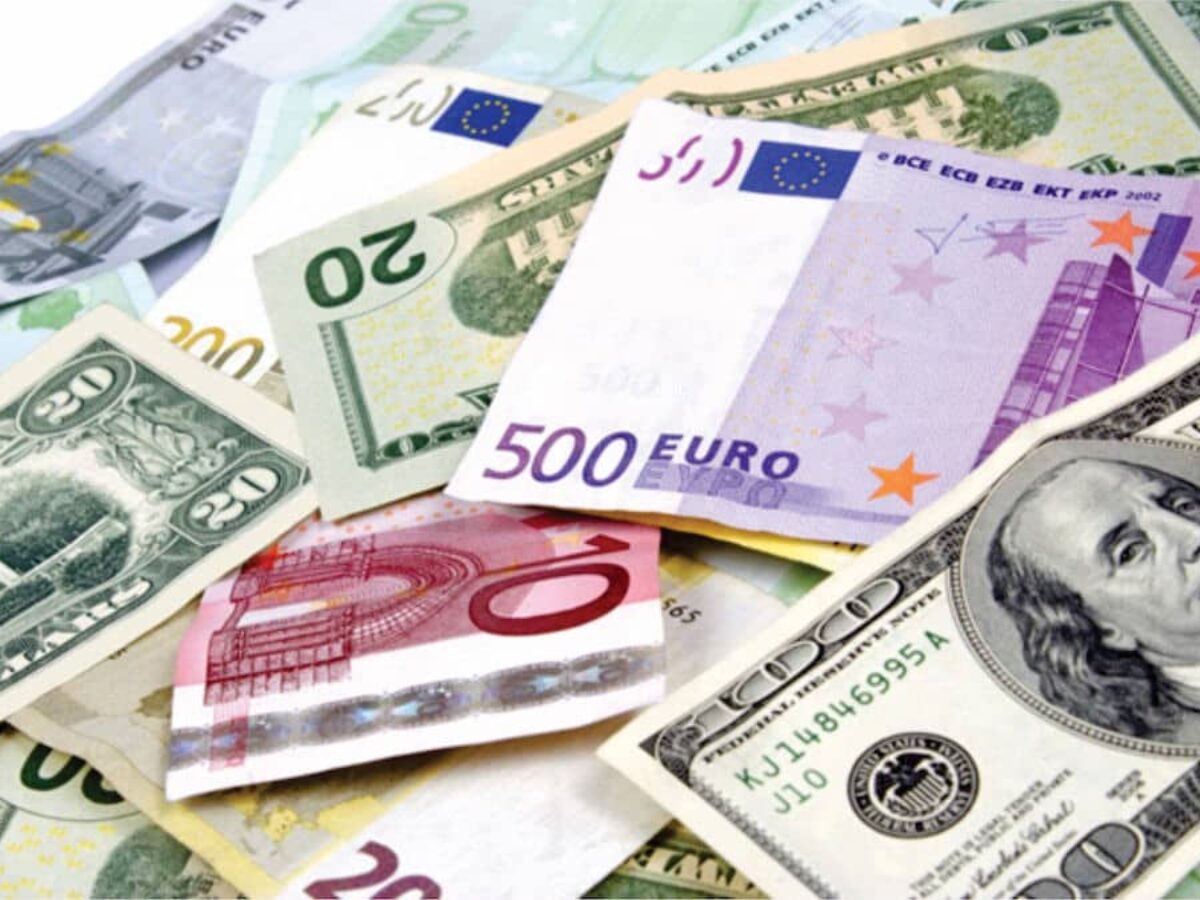Brands and Marketing
Pound Sterling Falls Against Dollar And Euro After Off-Piste Lagarde Triggers Market Sell-Off

Pound Sterling Falls Against Dollar And Euro After Off-Piste Lagarde Triggers Market Sell-Off
The British Pound tracked a global market selloff lower after a surprisingly hawkish European Central Bank policy decision rattled investors.
Global stocks were lower across the board after the ECB raised interest rates by 50 basis points but President Christine Lagarde warned numerous 50bp hikes were still required to bring inflation back down to the 2.0% target.
The strikingly hawkish stance sent European and global indices tumbling amidst a sharp deterioration in sentiment as investors feared the central bank’s policy will worsen the region’s economic recession.
“By far the big surprise was the level of hawkishness by the ECB. The contrast in the BoE and ECB announcements was evident by the move in 2yr yields – up 24bps in Europe and down 5bps in the UK,” says Derek Halpenny, Head of Research, Global Markets EMEA at MUFG.
The divergence in yields helps explain the decline in the Pound to Euro exchange rate, which fell 1.50% on the day with follow-on selling seen ahead of the weekend.
But by far the more compelling reason for the sell-off rests with Sterling’s ‘high beta’ to global investor sentiment: it rises when markets are rising but falls when they are selling off.
This relationship helps explain the Pound’s ascent through the October and November period as it tracked a rebound in equities.
Should the market rebound stall, then so too would the Pound’s ascent.
The Pound to Dollar exchange rate fell 2.0% on the day and is softer again on Friday morning at 1.2166.
Market sentiment remains poor on Friday as investors continue to digest the implications of recent developments at the ECB.
Eurozone sovereign bond yields have surged in the wake of the ECB’s guidance that interest rates must go materially higher, heaping pressure on peripheral countries such as Italy which now pays out more than 4% on its 10-year bond.
Lagarde said, “we’re not pivoting” and that the ECB is “in for a long game”.
Financial conditions across the Eurozone are tightening as a result and the region’s growth prospects will deteriorate sharply.
“The hawkish message from the Fed and even more so the ECB will mean upside risks for market rates going forward sentiment in particular for the ECB. This could further undermine risk which has deteriorated and could worsen further from here,” says Halpenny.
How long the Euro remains supported by these developments remains hard to say: if we recall the Pound sold off sharply following a similar spike in funding costs in September.
But what is assured is that as long as market sentiment is poor, the Pound will struggle regardless.
“Higher EUR/GBP is also consistent with worsening risk sentiment and higher volatility is when EUR tends to outperform GBP,” says Halpenny.
(If you are looking to protect or boost your international payment budget you could consider securing today’s rate for use in the future, or set an order for your ideal rate when it is achieved, more information can be found here.)
Euro exchange rates were higher after the ECB said that, based on the substantial upward revision to its inflation outlook, it expects to raise interest rates further in the future.
“The Governing Council judges that interest rates will still have to rise significantly at a steady pace to reach levels that are sufficiently restrictive to ensure a timely return of inflation to the 2% medium-term target,” said the ECB in a statement.
“That’s a very hawkish ‘pivot’ from the ECB. Grim new forecasts and rate guidance. I think we need to contemplate rate hikes in Q2 too,” says Claus Vistesen, an economist at Pantheon Macroeconomics.
ECB President Lagarde hammered home the ‘hawkish’ tilt by saying it was “obvious” that we should expect 50BP rate hikes for a period of time.
Vitor Constâncio, Former ECB Vice President, says the ECB’s new tune is “bad news for Euro Area prospects. The ECB decisions, language and forecasts, point to an excessively hawkish policy that will aggravate the coming recession unnecessarily.”
“The expression ‘rates will still have to rise significantly’ is grounded on controversial inflation forecasts,” he says
-

 Entertainment1 week ago
Entertainment1 week agoBREAKING: Veteran Nollywood Actor, Zulu Adigwe Is Dead
-

 Headline1 week ago
Headline1 week agoBREAKING: Ex-Imo Governor, Emeka Ihedioha Dumps PDP
-

 Headline1 week ago
Headline1 week agoBREAKING: Kogi Assembly Demand Immediate Removal Of Yahaya Bello’s Name From ‘Wanted List’ By EFCC
-

 Headline1 week ago
Headline1 week agoBREAKING: Famous Nigerian Senator Is Dead
-

 Entertainment1 week ago
Entertainment1 week agoHilda Baci Denies VeryDarkMan’s Claim Of Defrauding Online Cooking Class Students
-

 Entertainment5 days ago
Entertainment5 days agoMy Family Distribute Electricity To Most Of Nigeria – Davido Claims
-

 Entertainment1 week ago
Entertainment1 week agoMy Kind Of Music Is Afrofusion – Davido Denounces Afrobeats
-

 Headline1 week ago
Headline1 week agoLALIGA: Xavi Makes U-turn, Decides To Stay In Barcelona Next Season
-

 Headline5 days ago
Headline5 days agoBREAKING: Sierra Leone Minister Of Power, Sesay Resigns
-

 Headline1 week ago
Headline1 week agoJUST IN: EFCC Begging Ex-Kogi Governor, Yahaya Bello — Lawyer Reveals


















